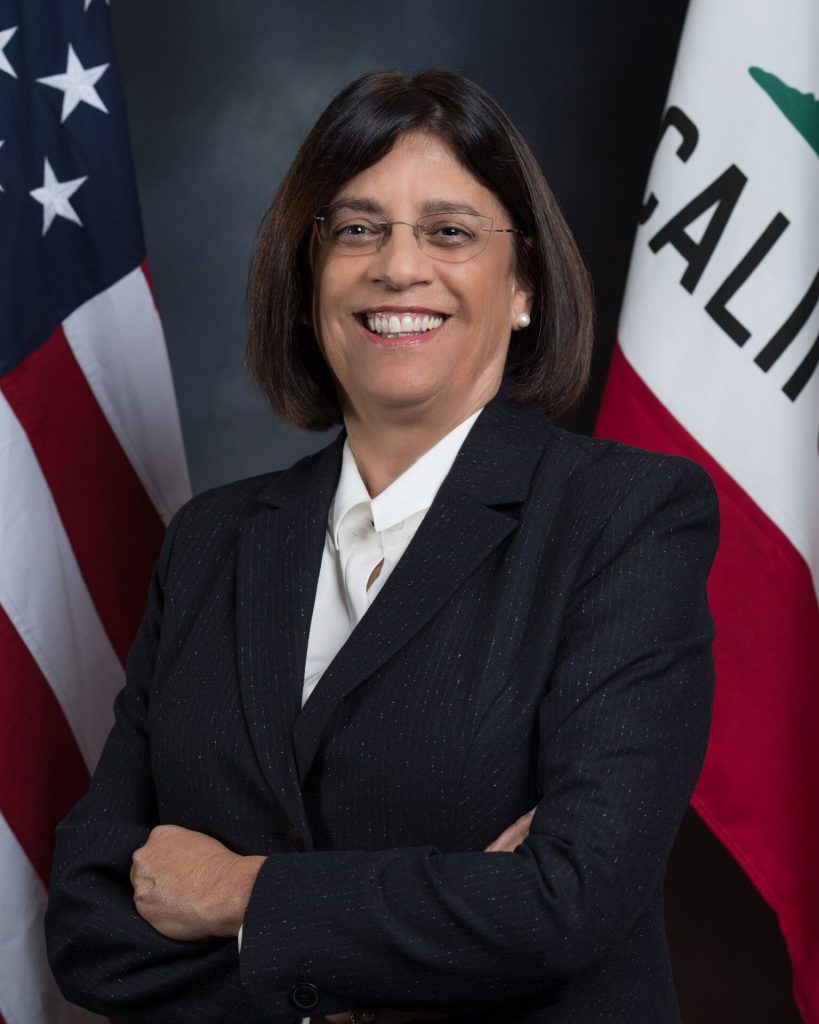
In December, Assemblymember David Chiu introduced AB 11, which would “allow cities and counties to create agencies that would use tax increment financing to fund affordable housing and infrastructure projects. Assemblymember Cecilia Aguiar-Curry chairs the Assembly Local Government Committee and is a joint author of the legislation.
In a phone interview with the Vanguard on Wednesday, she told the Vanguard it is a re-write of a bill introduced last year, AB 3037. She explained that this really isn’t an RDA 2.0. Instead this creates a financing tool to fill the hole left by the departure of RDA.
The bill was introduced in December but likely won’t be heard until April, the assemblymember explained. She said the key will be to determine, “What is working, what is not working. How to address the lack of funding (for affordable housing).”
Part of the key will be to figure out what worked and what did not work with the previous redevelopment.
“We do know that people took advantage of RDA years ago,” the Assemblymember explained. “We don’t want that to happen. Some of us in the smaller communities really took the brunt of that. We need to figure out how to fill the void we have now.”
Some of the money from the tax increment, still exists and is available. For instance, SB 628 by Senator Beall allows a city or county to establish an EIFD (Enhanced Infrastructure Financing District) to “capture property tax increment, adopt an infrastructure financing plan, and issue bonds upon approval by 55% of the voters, in order to finance public capital facilities or other specified projects of communitywide significance.”

Assemblymember Aguiar-Curry said that last March they had a hearing to review and analyze current community development tools.
“We found out no one was using the tool,” she said. For EIFD’s, there were only two in the whole state.
“What really is frustrating to me, some of these policies that have been pushed through, they don’t (fund) rural communities,” she said. She noted that for rural communities at times, there is too much paperwork to apply for funding and staffs are unfamiliar with how to go about accessing those funds. “It’s a tough nut to crack in certain ways.”
Davis City Manager Mike Webb noted that, while EIFD can fund affordable housing, there are drawbacks.
“First, an EIFD would need to be established. EIFD can be created anytime and anywhere in the city,” he explained.
Moreover, “A key consideration in creating an EIFD is that property tax increases from the EIFD boundaries will create a cap on property tax revenues to the General Fund. Any additional property tax revenues (tax increments) will flow in the EIFD fund.”
The council would have to approve a list of eligible projects that would be funded from EIFD proceeds. At this point, there has not been a specific discussion about it with council.
At this point it is only the beginning of the conversation on a new redevelopment plan.
“I am committed to affordable housing projects,” Assemblymember Aguiar-Curry said.
In addition to redevelopment, Assemblymember Aguiar-Curry is pushing for a constitutional amendment – ACA 1 – that would allow a lower voter threshold from a two-thirds supermajority to 55 percent to approve local general obligation (GO) bonds and special taxes for affordable housing and public infrastructure projects.
“Right now it’s for affordable housing and public infrastructure projects,” she explained. “The reason I am doing this is how many times in Davis and other cities, you can’t get to two-thirds?”
The city recently put a parcel tax on the ballot last June to fund roadway repairs that received 57 percent of the vote. Under the current rules, it required two-thirds of the voters to approve it. Under Assemblymember Aguiar-Curry’s proposal, that would lower the threshold to 55 percent – where it would have passed last June, enabling the community to have funding for road repairs.
“I think it should be up to locals to determined if they want to be taxed, not the state,” she explained. As it stands right now the state can pass taxes with majority voter approval. But as the Assemblymember explained, “When it comes from the state it’s not equitably distributed.”
“It is distributed based on the population,” she said. But given the share that smaller communities would get, ‘What can you do with $50,000 nowadays?”
The constitutional amendment requires two-thirds vote in both the Senate and Assembly, and then approval from the voters of California in 2020.
Meanwhile, the assemblymember is hoping to take up RDA in April.
“The problem with the old RDA was the definition of blight,” she explained. “That’s when people abused it.”
Critics are also concerned that, while RDA would feed affordable housing, it would take away funding for schools, cities and counties which are already capped by Prop. 13. “That was the chief reason Governor Brown attacked RDA in the first place.”
Assemblymember Chiu wants to restore funding for affordable housing, but avoid what he called “egregious and often bizarre abuses” by the dissolved agencies – making sure it includes safeguards such as record-keeping requirements, regular audits and state oversight.
Assemblymember Aguiar-Curry is optimistic of its chances.
“As long as it’s not called RDA 2,” she said. “I’m hoping that we can get it through this year. The governor seems very interested in moving this policy forward.”
—David M. Greenwald reporting







I’d be interested in a few things here… first, the new RDA. We clearly need that. Second, lowering the tax rate to 55% makes sense. Third, the EIFD is something we should look into for both affordable housing and economic development. I’m surprised someone like Robb Davis wasn’t more attune to that.